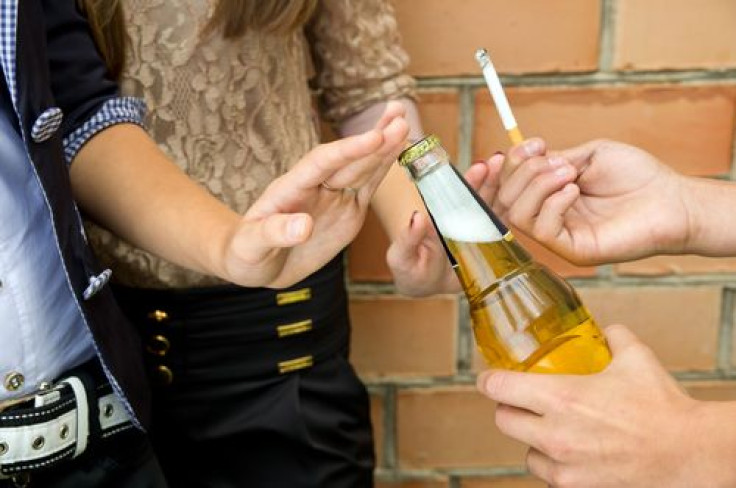Underage Drinking Lower In Communities With Strict 'Social Host' Laws

Teenagers and college students living in states with strict "social host" laws are less likely to get intoxicated on drinks, according to a new study in the November issue of the Journal of Studies on Alcohol and Drugs.
A social host is defined as one who serves alcohol as an act of hospitality without any monetary gain to guests or people who visit them. In other words, under the Social Host Liability law, an adult host would be responsible for the actions of an underage person who consumed alcohol while on the host’s property. States have different variations of this law, and many are also skeptical on whether or not they deter teenagers from consuming alcohol.
The new research from the Prevention Research Center in Oakland, Calif., focused on 50 communities in this state, half of which had strict social host laws. The researchers found that teenagers were less likely to drink at parties that had strict social host laws in place. But the researchers are quick to point out that these results may not be a direct impact of the law.
"These findings are preliminary. We can't say that social host laws definitely prevent kids from drinking at parties," said lead researcher Mallie J. Paschall in a statement. But nevertheless, the results are optimistic. "Most kids get alcohol from social sources, not commercial ones," he pointed out. So, laws that target the social-sources of alcohol, such as parents or adult caretakers, can help reduce underage drinking.
"It does look like there is less frequent drinking among teenagers in cities with stringent social host laws, even when other city and youth characteristics that are related to underage drinking are controlled for," Paschall added. "So these laws might be an effective strategy for reducing hazardous drinking."
Certain states have strong social host liability laws that hold adults responsible for serving alcohol to minors. In such cases, the police can impose misdemeanor citations with fines to any adult who permits underage drinking in their home or on their property. Property owners are fined even if they claim ignorance to underage drinking.
While many states view the law as being controversial and do not fully incorporate it due to opposition from the public, the researchers state that looking at the overall benefit, the law must be upheld.
Enforcing the law would make adults more responsible and aware and deter them from serving alcohol to minors. They could also save countless lives that are lost due to accidents or drunk driving.
In their next study, the researchers plan to understand how well the social host law works in preventing rates of teenage drinking.
Source: Paschall M, Lipperman-Kreda S, Grube W, Thomas S, Relationships Between Social Host Laws and Underage Drinking: Findings From a Study of 50 California Cities. Journal of Studies on Alcohol and Drugs. 2014.



























